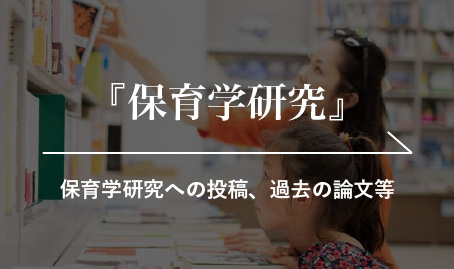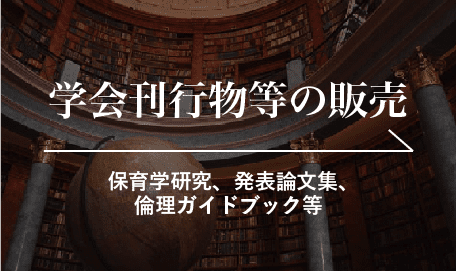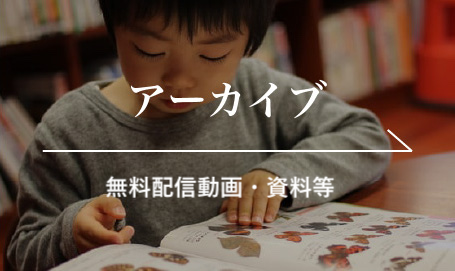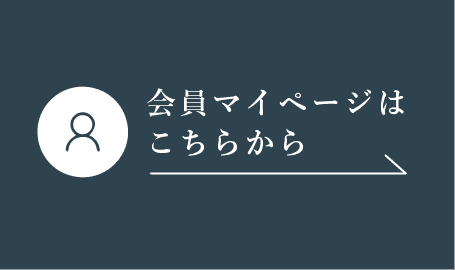< VOLUME 53, No.2 >
Ryusuke Ikeda. Features
of Preschool Teachers’ Understanding of Children in Daily Practice: Analysis of
Preschool Teachers’ Reflections on the Interpretation and Evaluation of
Children.
Research on Early Childhood
Care and Education in Japan, 2015, 53(2),
116-126.
This study aims to clarify
the features of preschool teachers’ understanding of children, focusing on how
pre- school teachers interpret and evaluate the children’s characters in daily
practice. The data is based on the reflec- tions of two preschool teachers
after their practice.
As for results, first, the
preschool teachers have a tendency to understand the children in the context
the chil- dren’s development. Second, the preschool teachers’ sense of the
children’s problems functions as the perspective from which they attemp to
understand the children. Third, it is suggested that understanding the children
im- proves the preschool teachers’ expertise. Such mutual development is a
feature of preschool teachers’ understand- ing children.
Keywords: Understanding children, Understanding
for mutual development, Reflection, Preschool
teacher, Difficult children
—————–
Hiroshi Hatakeyama. Kindergarten
Teachers’ “Reflection in Action”: Based on their Acts of Recalling.
Research on Early Childhood
Care and Education in Japan, 2015, 53(2),
127-137.
The purpose of this study is
to clarify the contents and processes of "reflection in action" when
kindergarten teachers associate with a child. Semi-structured interviews were
conducted with kindergarten teachers (N=5). Linguistic data from interviews
were analyzed using the Grounded Theory Approach. As aresult, "Reflection
in action" is a process involving three steps. The first step is
"judgment concerning support," the next step is "evalu- ation of
the results of the support," and the last step is "determining the
need for re-support and performance." It was also revealed that the
content to be considered in each stage are the "child’s needs and
situation."
Keywords: kindergarten teachers, reflection
in action, judgment concerning support, evaluation
of the results of the support,
determining the need for re-support and
performance
—————–
Miwako Amano. Young
Children’s Experiences During “Communication Experiential Activities” between
Young Children and Junior High School Students: In the Context of Their Lives
in Day-care Nurseries and Kindergartens, in What Sort of Scenes do Young
Children Communicate with Junior High School Students?
Research on Early Childhood
Care and Education in Japan, 2015, 53(2),
138-150.
The purpose of this study was
to observe the “communication in experiential activities” implemented between
children and junior high school students at day-care nurseries and
kindergartens. Also examined was what sort of experiences children had when
communicating with students with whom they normally have few opportuni- ties
for contact due to age differences. Analysis was made in four categories,
including “scenes of free activities,” “scenes of joint activities,” “scenes of
basic daily life,” and “scenes of moving from one activity to another.” We
found that junior high school students are special entities with whom the
children have no contact in their nor- mal lives and that the way students
treat them is different from the way they treat their teachers and fellow chil-
dren. This creates an atmosphere different from that of the children’s daily
lives.
Keywords: Experience of Young Children, Communication
in Experiential Activities, Young Children and Junior High School Students
—————–
Akane Kanouchi and Kiyomi
Kuramochi. Junior High School Students’ Experiences Interacting with Younger Children
during Early Childhood Education and Care: From an Analysis of Student
Narratives.
Research on Early Childhood
Care and Education in Japan, 2015, 53(2),
151-161.
The aim of this study is to
examine what junior high school students experience and feel during their
experi- ences in early childhood education and care (ECEC). Two junior high
school students with low self- esteem were subjects for this study. The
self-esteem score of one student was higher after the ECEC, and that of the
other one was lower. The narratives written by the two students after the ECEC
were analyzed. It was found that the student with the lower score reported more
negative feelings than the student with the higher score. The student with the
lower score reported hurtful comments and bad treatment from the younger child.
Children’s behavior is usually a mixture of both good and bad. What is
necessary are lessons for junior high school students, before and after the
ECEC, which help them understand the meaning of the behavior of younger
children.
Keywords: Experience in Early childhood
education and care, Kindergarten, Junior
high school students, Self-esteem, Home
economics
—————–
Mihoko Abe. Practical
Study on the Effect of "PANPS Consultation" (Consultation for
Proactive Approaches of Nursery Teachers towards Problem Solving) for the
Improvement of Behavior in Children with Special Needs: Development and
Utilization of the "Behavior Analysis and Support Form”.
Research on Early Childhood
Care and Education in Japan, 2015, 53(2),
162-173.
The purpose of this study is
to examine, by means of a practice case, the effects of "PANPS
consultation" on childcare for children with special needs.
The participants were five
nursery teachers who were struggling with the challenging behavior of a 3-
year-old child suspected of developmental disorder.
Through the six consultation
sessions that were carried out over 7 months, and by utilizing the “be-
havioral analysis and support form,” they were able to discuss, create and
implement a support plan for the child by themselves. As a result, the child
developed appropriate behavior and challenging behavior was reduced.
The results suggest that
"PANPS consultation” promotes the acquisition of skills necessary for
nursery teachers to proactively improve their nursery care for children with
special needs.
Keywords: Children with special needs, Itinerant consultation
service, Childcare consultation, Support
plan, Improvement of childcare expertise
—————–
Maki Kawaguchi. Using A
Supportive Sheet in Transition Support for Children with Special Needs: Focusing
on Periods of Transition to School.
Research on Early Childhood
Care and Education in Japan, 2015, 53(2),
174-184.
The purpose of this study is
to clarify the nature of the transition support of three children with special
needs. On this occasion, by following the layout of a supportive sheet,
transition was divided into “before transition,” “stage of transition” and
“late-stage of transition.” The special features of transition support from the
period of transition were then examined.
As a result, the following
points became clear. First, the transition support sheet promoted cooperation
among childcare centers, kindergartens and elementary schools. Second, by
dividing the periods of transition to school, the characteristics of each
period were clearly shown. Third, as a way of dealing with parental anxieties
concerning transition to school, it was shown that cooperation with parents is
necessary from the period “before transition.”
Keywords: Transition to school, supportive
sheet, children with special needs
—————–
Takumi Mori, Keiko Nakano,
Sachiko Sakai and Hiromi Yazawa. Consultations
in Pre-school Settings: Clarifying Realities and Problems: A Qualitative
Analysis of Interviews with Management and Veteran Pre- School Teachers.
Research on Early Childhood
Care and Education in Japan, 2015, 53(2),
185-193.
This study aims to clarify
the realities and problems of pre-school teachers who consult with external
experts. Regarding the realities and difficulties of attending kindergarten
consultations and the methods adopted for child-care practice, interviews were
conducted with managers and veteran pre-school teachers who are influential in
the implementation of such consultations. The transcripts of the interviews
were then analyzed.
The results indicated the
following:
1. An ever-present desire for
better child-care (Realities of the kindergarten)
2. A desire for a two-way
dialogue with experts using approaches and language appropriate to the context
of child-care (Expectations from a consultation)
3. More clarification
regarding practical discrepancies (Quest for mutual co-operation)
4. The frequency of
consultation visits, etc. (Implications for the current approach to
consultation
Keywords: Consultation, Kindergarten, Qualitative
analysis, Management
—————–
Maki Eto. An
Analysis of Preschool Teachers’ Narratives concerning their Relationships with
Parents : Focusing on Varying Understandings and Differences in Teaching
Experience.
Research on Early Childhood
Care and Education in Japan, 2015, 53(2),
194-205.
The purpose of this study is
to clarify the differences found in relationships with parents between
experienced teachers and novice teachers. This is achieved by analyzing how
teachers talk about parents. Fourteen teachers from private kindergarten were
divided into two groups: those with more than eight years and those with less
than eight years of teaching experience. Their perceptions of parents’ concerns
were compared. A data analysis was performed using M-GTA (Kinoshita, 2007). It
showed that preschool teachers’ years of experience affect how they talk about
parents, and it was also clear that their understanding of parents changed.
However, this analysis also includes the experiences of preschool teachers
themselves as parents, so the approach from the par- ents’ side needs greater
future examination in terms of relationship building.
Keywords: Preschool teacher, Parents, Relationships, Years of
teaching experience, Understandings
—————–
Tomoko Miyamoto and Haruyo
Hujisaki. Longitudinal Study of Fathers’ Narrations after Participating in Childcare
Activities : The Expansion of Fathers’ Horizons Brought about by Participating
in their Children’s Lives in the Nursery.
Research on Early Childhood
Care and Education in Japan, 2015, 53(2),
206-217.
The purpose of this study is
to analyze the narrations of fathers during a group meeting held after they had
participated in childcare activities. This was done in order to learn how
fathers think about child-rearing. The fa- thers, who have child attending the
nursery, participate in childcare activities every year, after which they attend
a group meeting. By analyzing the narrations of a total of 80 fathers who
participated in the childcare activities from year 20XX to 20XX+3, the
following words/subjects were found in the fathers’ narrations of their experi-
ences: <children>, <nursery>, <oneself>, <wife>.
Additionally, their narrations differ based upon the age at which their child
entered the nursery and the number of years they themselves have participated
in the childcare activi- ties.
Keywords: nursery, participate in childcare activity, fathers’
narrations, longitudinal study
—————–
Ayumi Ohno. Trends in
Early Childhood Education Visible in Sweden’s Care Reform : With a Focus on the
Relationship Between the ECEC System and the Welfare State.
Research on Early Childhood
Care and Education in Japan, 2015, 53(2),
220-235.
This research focuses on
Sweden’s early childhood education and care reform. In particular it
concentrates on the period between 1972 and 2011, i.e. from the unification of
nursery school and kindergarten education until the revision of the national
preschool education curriculum. Trends during this period are analyzed from the
point of view of the relationship between the ECEC system and the welfare
state. It is suggested that since the 1930s, Sweden, as a welfare state, has
pushed forward a policy aimed at guaranteeing the public availability of high
quality, democratic early childhood education and care. During the years that
intervened, early childhood issues shifted from parenting support to school
education in policy. During this period, the meaning of early childhood care
changed from being a social welfare system aimed at population growth to being
a new education system. This new education system seeks to create human capital
which is considered the foundation of the wel- fare state.
Keywords: Early Childhood Education and Care Reform, Sweden, Trends, ECEC
System, Welfare State
—————–









